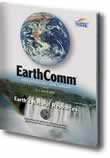This investigation will help you to:
- The Water Cycle
- Part B: Local Water Use, to complete the investigation, each student group will need:
- Part D: Collecting Rain Water in Your Community, to complete the investigation, each student group will need:
- To learn more about volcanic eruptions and the water cycle, visit the following web site:
- To learn more about drinking water from the ocean, visit the following web sites:
- To learn more about dating water, visit the following web site:
- "The Hydrologic Cycle" - USGS
This site is an on-line tutorial that includes a full color image of the water cycle and a review of the impact that humans can have on the water cycle. . - "Natural Processes of Groundwater and Surface water Interaction: The Hydrologic Cycle and Interactions of Ground Water and Surface Water" - USGS Circular 1139
Site reviews the basics of the water cycle, with a focus on the movement of water between and within ground and surface water reservoirs. Includes several full color illustrations. Additional information can be obtained by clicking on "Box" links.
- Water use data in your county:
- EPA Office of Groundwater and Drinking Water
Click on your state to be taken to a new page that gives an overview of your state's drinking water and links to additional information. To view your water quality report, click on the "water quality report" link to view a list of reports that are available online. - USGS Water Use Data, 1995 Print out the data directory first, as it explains the cods used for each data category. Next, locate your state and click on the County Data File link. This will load water use data in tab delimited "spreadsheet" format. These files can be directly imported into spreadsheet computer programs, such as Excel. To do this, follow the directions below:
- With the data for your state in the browser window, select file, scroll down to save as, and save the document as text (i.e., "mystate.txt")
- Launch Excel and open up a blank workbook.
- In the file menu, select open. Find your file and open it. This will pull up a window call a "text import wizard". Follow the options for delimited text (the delimiters are tabs). When you are finished with the wizard, your local water use data will be in an Excel spreadsheet.
- Save the file as an Excel file. You can then print copies for students, transfer it to disk for use on computers in your classroom, or load it onto a school computer system.
Note: if your county's water use/quality data is not available online, you will need to contact your county or municipality to obtain the needed data.
- EPA Office of Groundwater and Drinking Water
- Local topographic map
Part D: Collecting Rain Water in Your Community, to complete the investigation, each student group will need:
- Local annual precipitation data
- World Climate.com
Go to site and type in the name of your city (do not enter the name of your state). This will open a page with a list of places with the same name. Select your community from the list to view data. Available data will vary with county. - National Regional Climate Centers
Click on your region. This will open a new page. Pages for each of the climate centers differ, so a little searching and looking around may be required. Try to find a link to climate data.
- World Climate.com
- Volcanic Eruptions - Volcano World
Reviews the ways in which water interacts with volcanic eruptions. Includes colorful photographs.
- "MCWD Sea Water Desalination" - Marine Coast Water District, Marina, California
Short article covers the steps of the desalination process used to assure that water is safe to drink. Click on link to view a color graphic of the desalination process.
- "Tracing and Dating Young Ground Water" - USGS Fact Sheet 134-99
Site reviews the use of chlorofluorocarbons (CFCs), tritium (3H), and other chemical and isotopic substances in ground water to date water.

